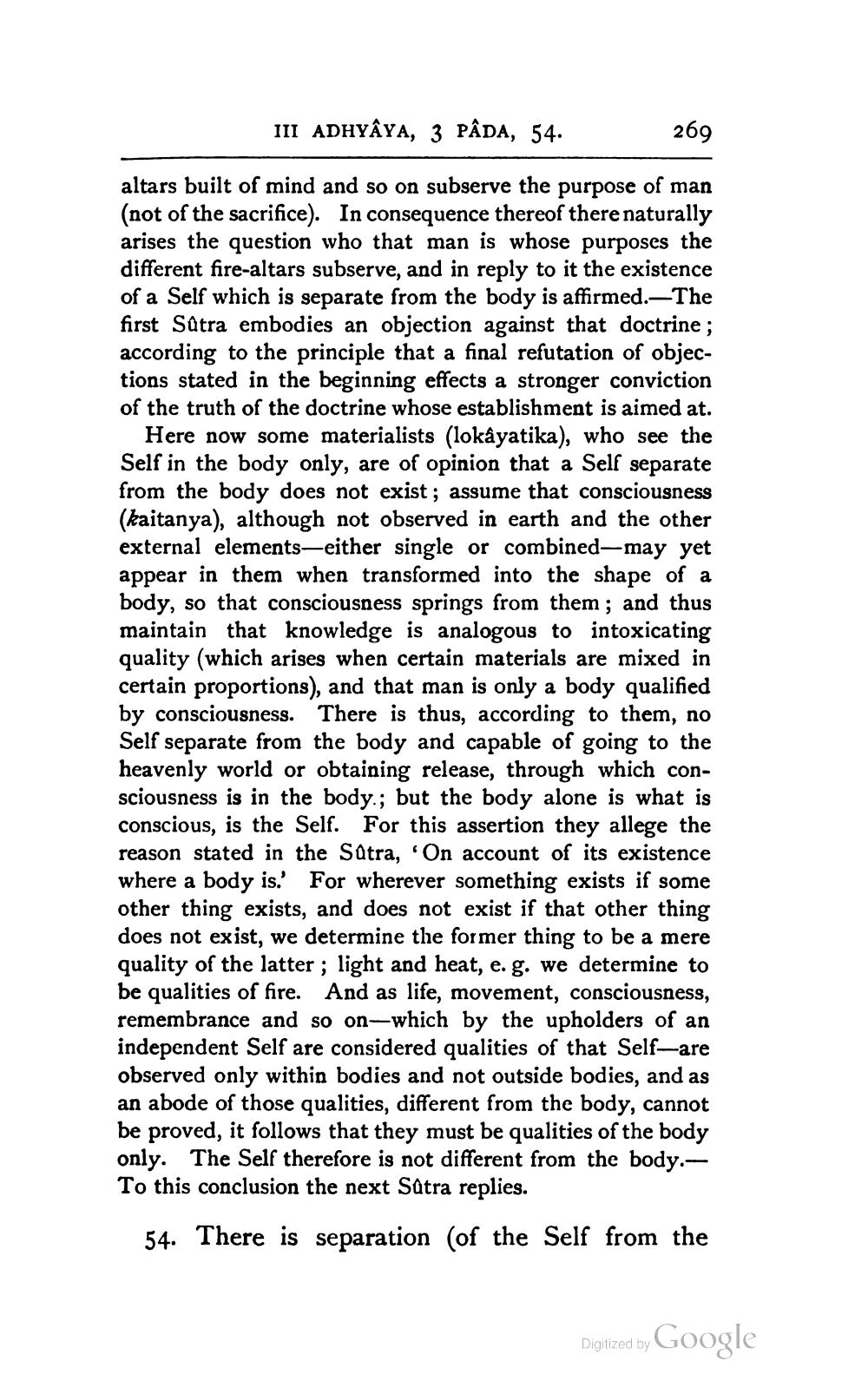________________
III ADHYAYA, 3 PADA, 54.
269
altars built of mind and so on subserve the purpose of man (not of the sacrifice). In consequence thereof there naturally arises the question who that man is whose purposes the different fire-altars subserve, and in reply to it the existence of a Self which is separate from the body is affirmed. The first Sûtra embodies an objection against that doctrine; according to the principle that a final refutation of objections stated in the beginning effects a stronger conviction of the truth of the doctrine whose establishment is aimed at.
Here now some materialists (lokâyatika), who see the Self in the body only, are of opinion that a Self separate from the body does not exist; assume that consciousness (kaitanya), although not observed in earth and the other external elements-either single or combined-may yet appear in them when transformed into the shape of a body, so that consciousness springs from them; and thus maintain that knowledge is analogous to intoxicating quality (which arises when certain materials are mixed in certain proportions), and that man is only a body qualified by consciousness. There is thus, according to them, no Self separate from the body and capable of going to the heavenly world or obtaining release, through which consciousness is in the body.; but the body alone is what is conscious, is the Self. For this assertion they allege the reason stated in the Sûtra, 'On account of its existence where a body is.' For wherever something exists if some other thing exists, and does not exist if that other thing does not exist, we determine the former thing to be a mere quality of the latter; light and heat, e. g. we determine to be qualities of fire. And as life, movement, consciousness, remembrance and so on-which by the upholders of an independent Self are considered qualities of that Self-are observed only within bodies and not outside bodies, and as an abode of those qualities, different from the body, cannot be proved, it follows that they must be qualities of the body only. The Self therefore is not different from the body.To this conclusion the next Sûtra replies.
54. There is separation (of the Self from the
Digitized by Google




